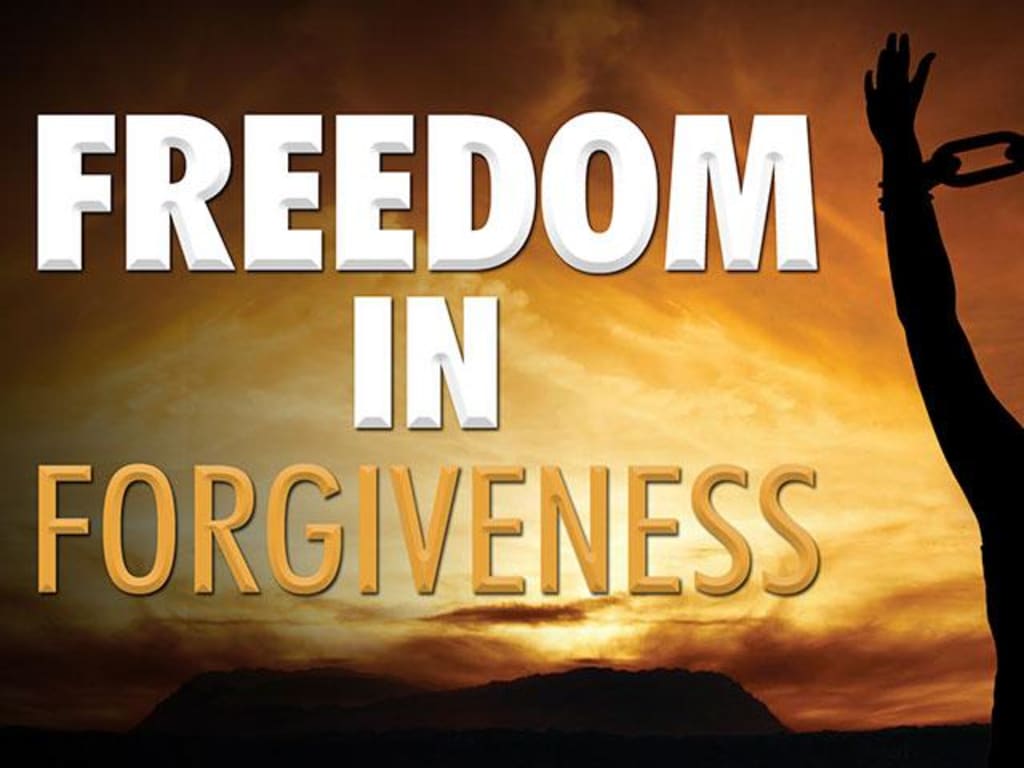Forgiveness In Relationships
"So how do we overcome our differences and look past disagreements caused by our friends and partners?"

Have you ever been in an argument before with your friend or partner? If so, raise your hand. From the looks of it, it seems like it’s nearly impossible to get into a relationship without getting into some form of conflict at one time or another. This makes me wonder why we choose to step into these kinds of relationships at all in the first place. While everyone may have differing opinions, I believe that life would be utterly boring without having other people around to share our experiences with.
So how do we overcome our differences and look past disagreements caused by our friends and partners? The answer is forgiveness. Forgiveness is a familiar word, but one that is frequently misunderstood in the context of relationships. To some, it may sound more like an almost sacrificial term used to justify and excuse whatever wrongs their partner has done or said; while to others, it is simply an impossibly difficult feat which is oftentimes easier said than done. I, however, believe that forgiveness is a necessity in order to have healthy relationships with those we care about.
Andy J. Merolla, the writer of my article, breaks down the science of forgiveness into three forms. Direct, Indirect, and Conditional. Direct forgiveness is where the offended tell the offender, “I forgive you,” plain and simple. Indirect forgiveness is where the offender does not tell the offender directly that they are forgiven but, between the two forgiveness is ‘understood.’ Conditional forgiveness is where it is communicated that the offended gives the offender forgiveness but, sets new conditions in place.
To find out what form of forgiveness is most often used, 264 randomized participants were given a questionnaire to fill out asking them: “When was the last time they forgave their current romantic partner or close friend and how they forgave them?” The researchers then broke this data down into the nitty gritty using statistical analysis and charts and made an interesting discovery. Per the results of these scientific studies, indirect forgiveness is the most commonly used form of forgiveness whilst direct forgiveness is second most commonly used form of forgiveness. Well, that’s great and all but, why does all this matter? How is learning more about forgiveness significant in our everyday lives?
Well, my take on this issue is that learning more about forgiveness can not only shed light on the positive aspects of forgiving others but also on some of the negative effects that could arise when one’s forgiveness is taken for granted and abused. For example:
- If your partner does something you don’t like for the millionth time and you keep forgiving them, that build up can climax in the form of a huge argument that could have been avoided through means other than blind forgiveness.
- Another example is if your friend keeps referencing that one embarrassing thing you did that one time and keeps getting on your nerves but, you keep blowing it off and saying “it’s ok that was kind of funny… I guess.” Ultimately only managing to cope in the short term.
- And a final example are if the forgiving individual sets unrealistic conditions and expectations for the offender to attain forgiveness, feelings of inferiority or contempt can arise as a result. The offender may also try to keep working their way around or through the cracks, leading to an over unhealthy and deceptive outcome in the relationship.
Where we draw these lines, and to establish boundaries is not set in stone, but the one question we should ask ourselves is if this relationship is right for you. This may seem like a daunting question but it can be broken down into a series of smaller questions. You can start by asking yourself “If I keep forgiving this person, am I just letting them off the hook and allowing them to never learn to respect me?” If the answer is yes, see if you’ve already forgiven this person for the same thing before by asking “Is this the first or millionth time this person has gotten on my nerves?” If you answered yes to both questions, forgiveness may be becoming a problem in your life. These questions and observations serve to allow one to reflect upon their daily life and to realize how much one may be taken advantage off. While the offended may feel powerless in certain instances, they should always remember that they are in control of how much they tolerate. It is in this way that realizing the negative effects of forgiveness is a power because it can help one overcome abusive relationships with friends and partners and help create better ones.
If this is the case, then you might be asking why forgiveness is a value that is so highly praised throughout society? How can forgiveness benefit you?
Well, we all know that holding onto a grudge isn’t fun, and whilst revenge may seem like a good option in the short term, it is just like holding onto a hot coal with the intention of throwing it at someone else. In the end, you are the only one that gets hurt. My research has yielded numerous insights on the positive aspects of practicing forgiveness. An article published by the ‘Huffington Post’ nicely sums up these findings in a list detailing how forgiveness can benefit you physically, mentally and spiritually.
- It could mean a longer lifespan
- It helps you sleep
- Lowers the blood pressure
- Could have immune system benefits
- Protect against long-term stress
- Makes you less angry.
- It is empowering to the victim
It is the culmination these positive effects, that not only outweigh some of the negative aspects of forgiveness, but also allow us to form healthy, happy, and mutually rewarding relationships build on a foundation of true forgiveness in the future.
About the Creator
Ghost Writer
I just write whatever I think of.
I love fiction.






Comments
There are no comments for this story
Be the first to respond and start the conversation.